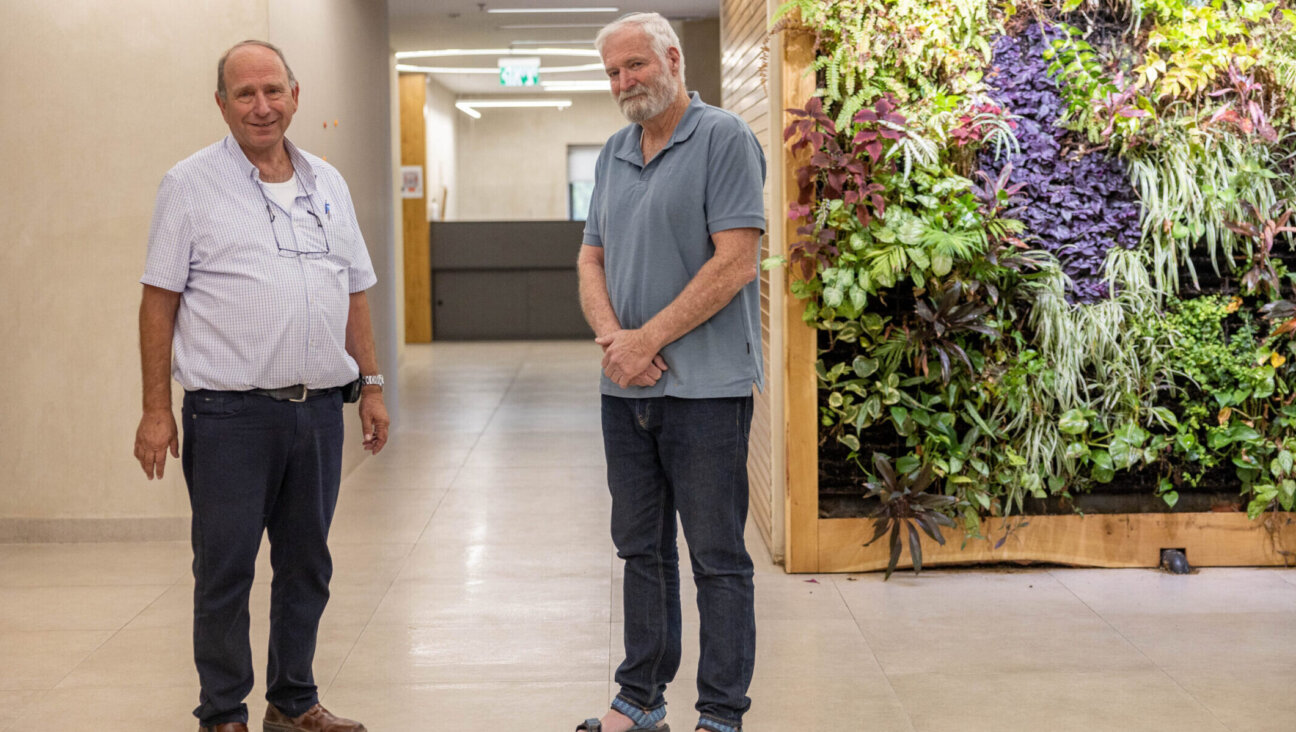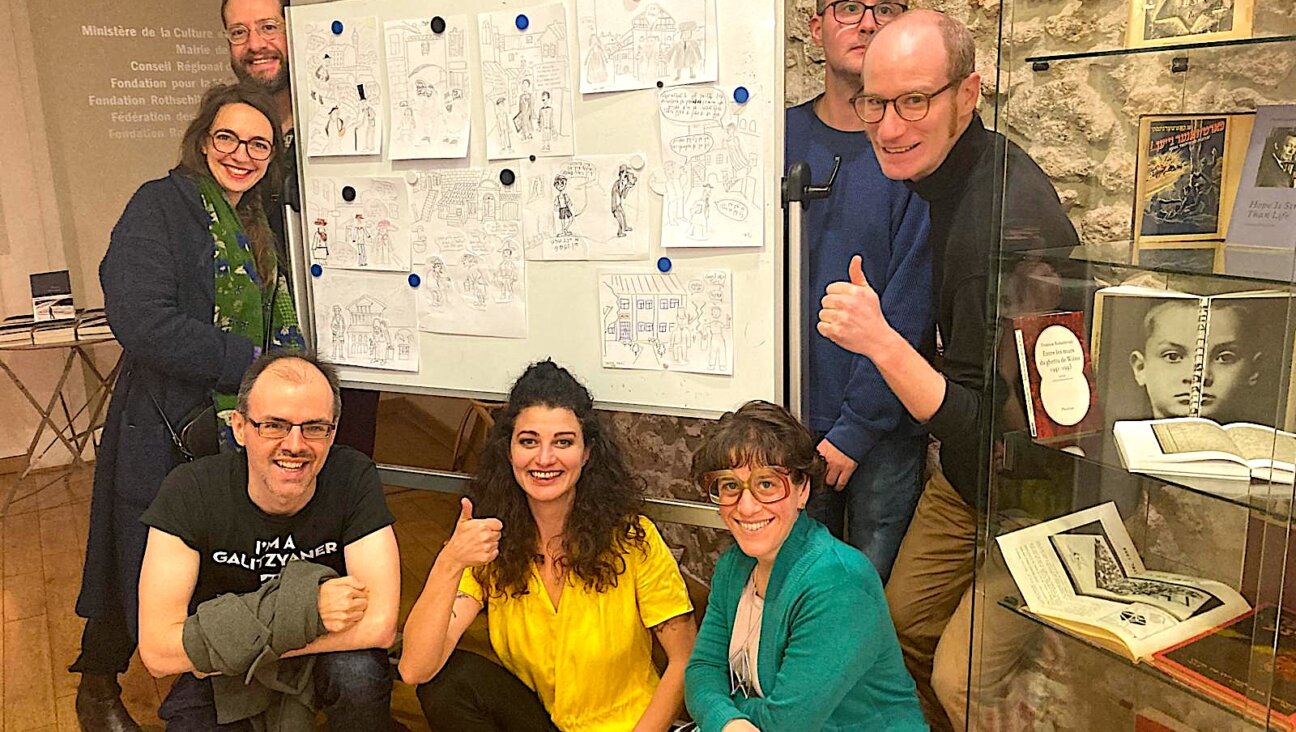Get To Know These Three Latin American Jewish Poets On #WorldPoetryDay

Image by PABLO PORCIUNCULA/Getty Images
On National Poetry Day, we introduced you to four of our favorite American Jewish poets. Now, for World Poetry Day, get to know three Latin American Jewish poets.
There’s a surprising lack of their work in English translation, so if you’re a Spanish-speaker — all three are from Spanish-speaking Central and South American countries — go forth and peruse them in their original language. If you’re not, enjoy the poems in English, below.
Juan Gelman
Gelman, born to Ukrainian Jewish immigrants in Buenos Aires in 1930, was a decorated poet, winning the Cervantes Prize, the highest honor in Spanish-language literature, in 2007. He was also a symbol of political resistance in Argentina, becoming an outspoken critic of Argentina’s military junta during the so-called dirty-war.
At the time the war broke out, Gelman was living in exile in Europe; his daughter, son, and pregnant daughter-in-law were all among the thousands of “disappeared” citizens kidnapped by the government during the junta’s rule. While his daughter and granddaughter survived, his son and that son’s wife were killed. (Gelman didn’t locate his granddaughter until 2000, when she was reunited with the rest of her family.)
As a poet, Gelman, who passed away in 2014, was deeply interested in the shades of the languages in which he chose to write, partially explaining the dearth of his work in translation. He began teaching himself Ladino, the Sephardic Jewish language derived from Hebrew and Old Spanish, later in life, and eventually published a book on the Sephardic diaspora in the wake of the Spanish inquisition.
In a rare appearance of Gelman’s work in English, Mexico City Lit published six of his poems, translated by Robin Myers, in 2014. “A bird once lived in me./A flower traveled in my blood./My heart was once a violin,” he writes, in “Epitaph.” Read more of that poem, and its companions, here.
Alejandra Pizarnik
Like Gelman, Pizarnik was born in Buenos Aires to immigrant parents, although her family hailed from Russia rather than Ukraine. A lyric poet, she relocated to Paris in 1960, where she found a home in a circle of Spanish-language writers including poet and short story-writer Silvina Ocampo, poet Octavio Paz, and novelist Julio Cortázar.
Throughout her career, Pizarnik was heavily influenced by French artists and intellectuals, including poet Arthur Rimbaud and dramatist Antonin Artaud. As she writes in “Your Voice,” one of a set of three poems translated by Yvette Siegert and published in the Boston Review, “Ambushed in my writing/you are singing in my poem.” Was she was writing of a friend, lover, or one of those influences? We’re unlikely to know. Puzzle over that poem, and the rest of the set in which it appeared, here.
Elizabeth Schön
Schön, who passed away in 2007, was born in Caracas, Venezuela in 1921. As poet and translator Guillermo Juan Parra wrote for Galatea Resurrects in 2006, Schön is almost unknown outside of her home country.
In an essay on Schön by Yolanda Pantin, translated by Parra, Pantin observes the poet’s powerful balance of impetuses, writing “We have seen that many poets value more what surges from the unconscious like a brute force than what results from intellectual effort.”
“But Elizabeth Schön’s poetry congregates both forces because it is impossible to separate the heart from the head, sensibility from reason, poetry being the balancing point: it is not thought, it is not emotion.”
Parra’s translations of 16 of Schön’s prose poems are some of the few examples of her work in English currently available.
“Whatever place we might visit, we will find something beautiful,” she writes in one. “I don’t think ugliness exists; if it does, it is surely the result of there not being enough clarity to appreciate the streets, the sharpness of the colors, the patience of the breeze that knocks on the large wooden doors until they open making a sound very close to the one that arises if you write on an old, worn chalkboard, with many cracks.”
A message from our CEO & publisher Rachel Fishman Feddersen

I hope you appreciated this article. Before you go, I’d like to ask you to please support the Forward’s award-winning, nonprofit journalism during this critical time.
We’ve set a goal to raise $260,000 by December 31. That’s an ambitious goal, but one that will give us the resources we need to invest in the high quality news, opinion, analysis and cultural coverage that isn’t available anywhere else.
If you feel inspired to make an impact, now is the time to give something back. Join us as a member at your most generous level.
— Rachel Fishman Feddersen, Publisher and CEO























